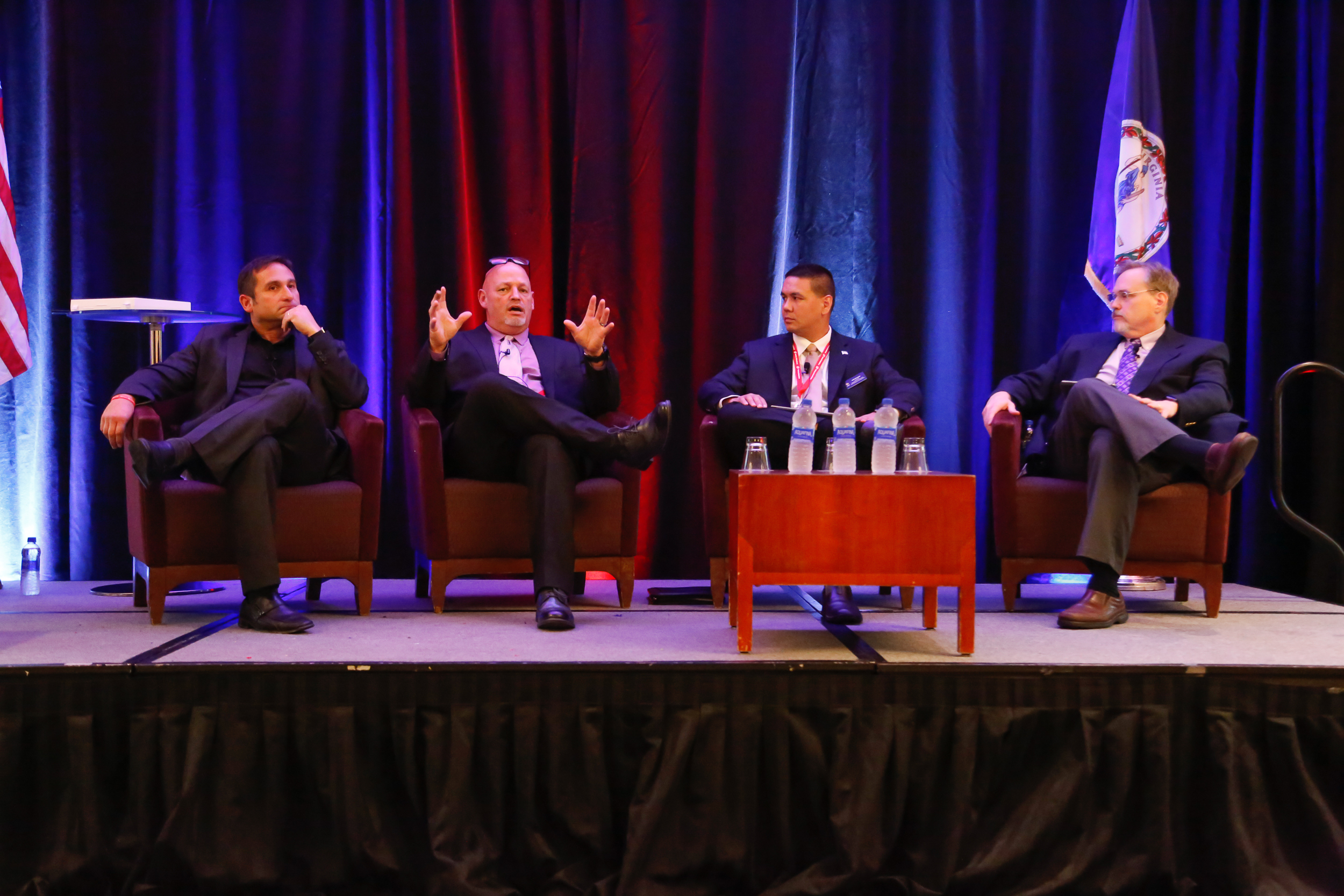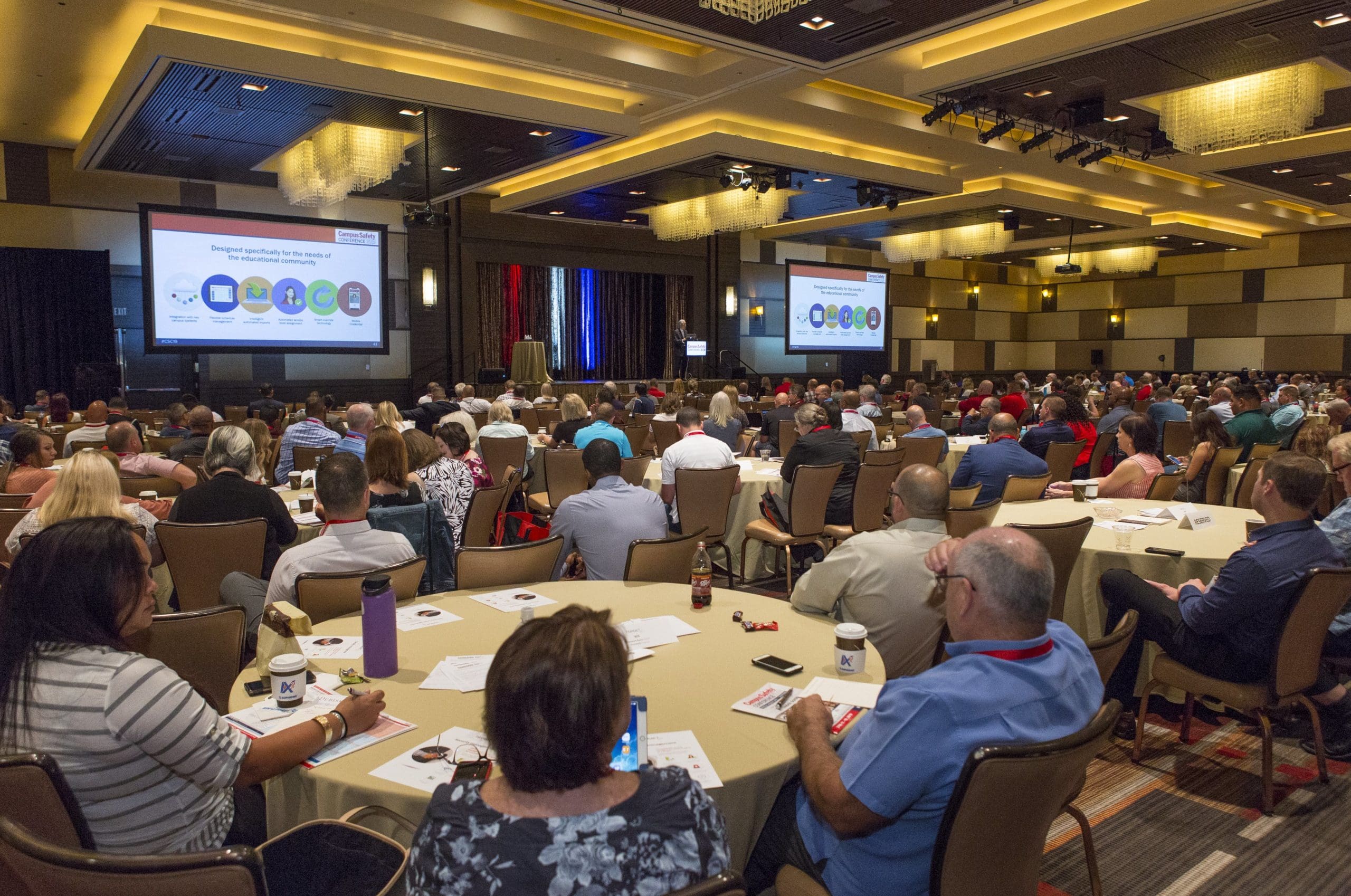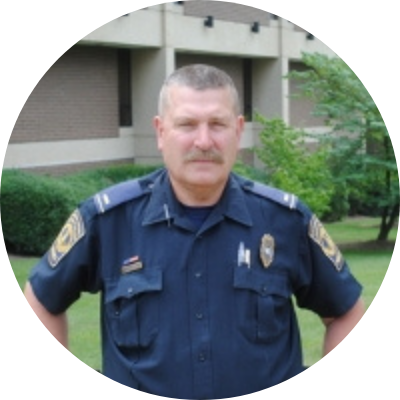Join Us in San Antonio this Summer!
Explore the Sponsor Showcase
Your conference pass will give you access to the entire sponsor showcase! See their latest offerings and find new products, safety solutions, and services that will have an immediate impact on your campus.


Hear from Industry Experts
Learn from industry leaders passionate about school safety and security who will share their insights, knowledge and experiences during two and half days of information-packed learning sessions.
In-Depth Workshop Trainings
Attend one of four workshops covering topics such as PASS Guidelines, After Hours Event Security and Emergency Preparedness, Clery Act, or Managing Campus Events and Protests. Add one to your conference pass when registering.

A deeper look into the sessions you don’t want to miss!

A Unique Perspective on Active Shooters: From Childhood Victim to Adult First Responder
Rob Young, Sergeant, Stockton Unified School District Police Department
A dramatic testimonial session that brings insight, not only as Rob tells his story as a victim, but as a police officer who responded to an active shooter incident, and who now helps conduct large-scaled training exercises in his hometown. Rob will bring new ideas to other agencies to think outside the box in order to make our response better as a whole (law enforcement, fire, EMS, local hospitals, etc).


Improve Student Mental Health and Welfare: How Schools Can Leverage Technology to Help
Eric Morgan, President and CEO, MindWare Technologies
Amy Jeffs, Vice President, Status Solutions
As a result of COVID-19, students are struggling with mental health challenges more than ever as a result of issues stemming from screen fatigue, heightened anxieties from inconsistent communication, and feelings of isolation. In fact, 31% (https://bit.ly/3daTz8m) of students report mental health negatively affecting their academic performance. It is on campus administrators to make sure your campus’s processes and technology prioritizes mental health, identifying students who are struggling early. In this session, you will learn the types of tools that can help to monitor student engagement, how that data can help to predict mental health issues early, how to intervene to be sure students’ welfare is preserved, and how to customize information through different technologies to be sure critical messages are resonating.

Keep Your Top Performers: Leadership Strategies for Building an Environment to Improve Staff Retention
Jeff Hauk, Director, Public Safety and Police Authority Services, Memorial Healthcare
With the current global economy, many security and public safety departments find themselves in an unusual position; having to fight to find and retain talent. Security professionals with limited opportunities just a few years ago face a new world of continuous expanding options. Discuss the essentials of re-recruiting your top performers and explore methods for retention of staff such as employee engagement, professional development, career ladders, motivation, teambuilding, and succession planning.


Use of Force Simulator Scenarios: Reacting to Split-second Situations and Managing the Message
Julie Parker, President & CEO, Julie Parker Communications
Jason Johnson, President, Law Enforcement Legal Defense Fund
Julie and Jason will demonstrate scenarios on a use-of-force simulator and give attendees the opportunity to try a “shoot/don’t shoot” experience. After attendees receive the fundamentals of police officer use of force, they will be put into groups and respond to video scenarios that could occur on or next to their campus.
Attendees can experience first-hand some of the physiological reactions that officers have when put into stressful scenarios. After a debrief, the attendees will be tasked with developing five key messages, talking points or tweets/posts for social media for their stakeholders (campus police chief, chancellor, etc) about their particular scenario.
Beyond helping prepare your campus leaders for the always-challenging crisis messaging task, this workshop offers an excellent way to learn how to communicate to your community stakeholders about the challenges law enforcement faces in today’s lightning fast social media-driven world.


Cultural Diversity, Stereotypes and Implicit Bias: Improve Training and Misunderstandings
Daniel Dusseau, Director Public Safety/Chief of Police, Northern Virginia Community College Police Department (NOVA)
John Weinstein, Commander, Strategic Planning and Outreach, Northern Virginia Community College Police Department

Outreach Programs: Addressing Homelessness on an Urban Campus
Toni Summerlin, Sergeant, Consolidated Police Services of Southern Nevada

I’ll See You Tonight: K-12 Student/Parent Reunification
Guy Bliesner, School Security Analyst, Idaho Office of School Safety and Security
“I’ll see you tonight,” is the expectation of every parent when they drop off their child and the responsibility of every educator, every day. Reunification of the right student with the right parent when things go wrong is one of the most daunting tasks for any school system. Effective actions following a critical incident create the bridge between response and recovery. When reunification is poorly executed, trauma is compounded for the affected school and the entire community. The information contained in this presentation is the result of extensive research and three cycles of development, exercise, evaluation and adjustment from a series of full-scale reunification exercises in Idaho. We identify effective practices developed, tested and modified through this ongoing effort. The presentation will include information based on direct observation, participation in the planning and after-action process and use of the written HSEEP report for each exercise. The information will be of interest to first responders and applicable to schools of all sizes and resource levels. Participants will receive documentation from the IOS3 on the most current plan framework documentation and planning considerations work sheet.
” CSC is the conference to attend. If you are not there, you are missing out! “
— Scott Leven, Director of Safety and Security, Ozarks Technical Community College